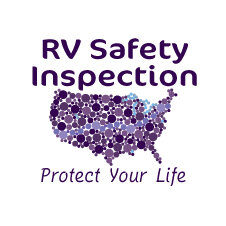Smoke Detector
/A Smoke Detector is one of the most important warning systems that your RV can have. Check your battery and the function of your Smoke Detector with the test button. Just like a sticks and bricks house you should always check, replace and test your functionality of your Smoke Detector.
Your RV is mostly made of wood, light, thin wood. The thinner wood can catch fire faster and burns faster. RV’s are made in such a way with thin lightweight wood since they need to be as light as possible to be towed or driven down the highways. A sticks and bricks house has many more preventable items in place to give you have a better chance of escape than an RV will have.
Check your battery if you are buying a used RV as the previous owner may have never done so, just replace the Smoke Detector no matter what when you take ownership of a used RV. Even with a new RV, remove the Smoke Detector and check the date printed or stamped on the reverse side so you know how old it is too. An RV Smoke Detector should not be older than 5 years. If you are buying a used RV older than 5 years replace the whole Smoke Detector and put in a new battery, go buy a new one don’t use batteries that have been sitting in your closet as batteries have dates too, make sure both are as new as possible.
As I was doing my first RV Inspection in class from a classmates RV I discovered that his Smoke Detector was not functioning, because there was no battery. Furthermore his RV was ten years old at that time and the Smoke Detector was just as old and very out of date. So check your RV and make sure the Smoke Detector is up to date and functioning properly.
Don’t go buy a Smoke Detector from a local store unless it is a RV store. An RV Smoke Detector is different and you need one specifically for RV’s. You need a duel sensor detector for smoke, one that detects ionization and photoelectric. Ionization is from smoke/fires from wood or cooking, Photoelectric is smoke/fire from electrical issues, remember you have AC & DC power in an RV. Consider buying a combination unit, one that is a Carbon Monoxide (CO) and a Smoke Detector for an RV. Your RV may have a CO detector combined with a LP detector, though not wrong per codes, CO is lighter than air and is better detected higher up along with a Smoke Detector where they are typically mounted. To put it plainly, get a Smoke Detector that detects smoke from both Ionization and Photoelectric smoke and is also a CO detector made for an RV. So make sure you get the right one.


